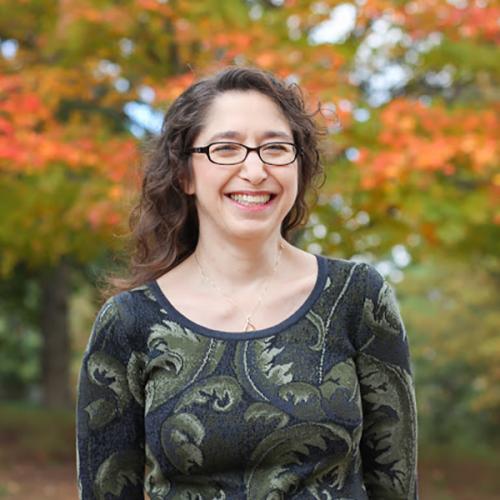Read My Lips! Facial Cues Help Toddlers with Autism Better Comprehend Speech in Noise, UMD Research Shows
Understanding speech in a noisy environment is difficult for children and adults alike, but new research from the UMD Department of Hearing and Speech Sciences finds that paying close attention to faces may help toddlers with autism spectrum disorders (ASD) cut through the noise.
Researchers compared the abilities of children aged 2 to 5, with and without ASD, to understand speech both in quiet and in the presence of background noise. In findings published January 6 in the Journal of Neurodevelopmental Disorders, all of the children had more difficulty in the noisy scenario, but toddlers with ASD were less able to use visual cues such as facial expressions and lip-reading to help them understand. However, those children with autism who spent more time looking at speakers’ faces appeared to struggle less with the background noise.
 “Modern households and classrooms include many sources of noise and the ability to understand speech amidst noise is critical for success and learning,” said lead author Rochelle Newman, professor and chair of the Department of Hearing and Speech Sciences. “Our results point to potential future interventions for children with autism who are having difficulty with this skill.”
“Modern households and classrooms include many sources of noise and the ability to understand speech amidst noise is critical for success and learning,” said lead author Rochelle Newman, professor and chair of the Department of Hearing and Speech Sciences. “Our results point to potential future interventions for children with autism who are having difficulty with this skill.”
In the study, children sat in front of images of two objects displayed on a screen and were prompted verbally to look at one of the objects. Researchers introduced a person talking at a low volume to assess the toddlers’ ability to deal with background noise and then showed a video of a person’s face delivering the instructions to examine whether this affected comprehension.
“While previous studies have found that adults and adolescents with autism have particular difficulty with noise, ours is the first to test this in young children,” Newman said. “This is a critical age for language development and the more we can discover about specific challenges children with autism are facing, the more effective we will be at developing strategies to overcome them earlier on.”
The research was funded by the Department of Defense Congressionally Directed Medical Research Programs. Co-authors on the Journal of Neurodevelopmental Disorders paper include Elizabeth Redcay, associate professor of psychology; Laura Anderson Kirby, a former clinical psychology Ph.D. student who is now a Clinical Associate at the Duke Center for Autism and Brain Development; and Katie Von Holzen, a former postdoctoral associate in hearing and speech sciences now at the Technical University of Dortmund in Germany.
This story was published January 11, 2021.
Published on Mon, Jan 11, 2021 - 2:11PM



